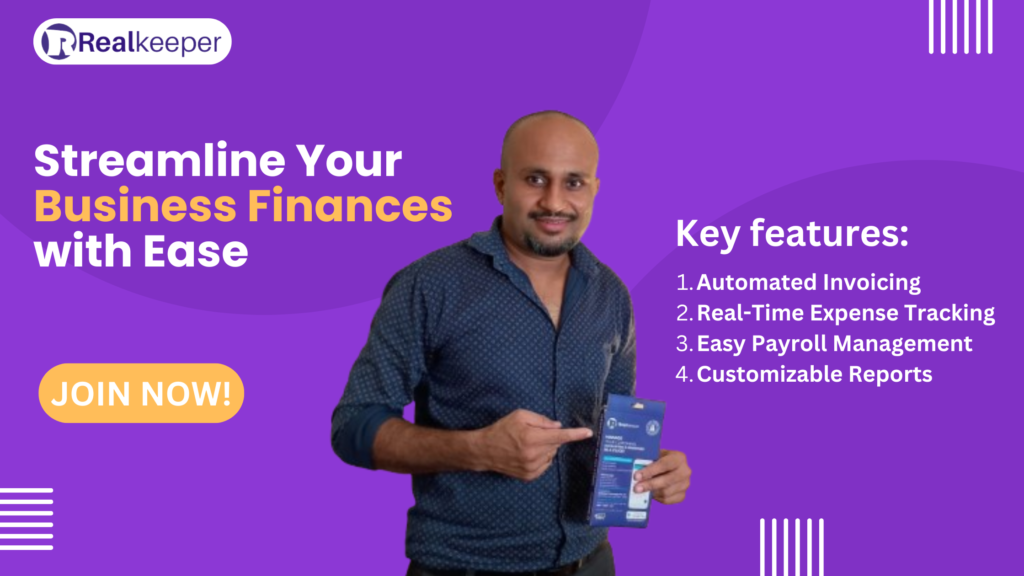
When it comes to running a business, choosing the right accounting software is a game-changer. However, many companies encounter the top costly mistakes when picking accounting software, leading to inefficiency, wasted resources, and frustration. Selecting the right tool requires careful evaluation of not just features but also compatibility with your business’s unique processes. At Realkeeper, we understand the nuances of choosing accounting software that seamlessly integrates with your operations. Here’s a guide to help you avoid the top costly mistakes when picking accounting software, ensuring you make a choice that supports your business goals.
1. Ignoring the Specific Needs of Your Business
One of the biggest mistakes businesses make when choosing accounting software is failing to assess their specific needs. Different industries, business sizes, and operational complexities require unique functionalities. For example, a restaurant’s accounting needs may differ significantly from those of a healthcare provider or a retail business.
Why This Matters
Selecting software that doesn’t align with your needs often results in cumbersome workarounds, inefficient processes, and potential errors. When software isn’t tailored to the demands of your industry, you may miss out on essential features like tax calculations, payroll management, or inventory tracking, which are crucial for accurate financial management.
How to Avoid This Accounting Mistakes
Accounting mistakes start by conducting an internal audit of your current accounting processes. Identify areas where your business requires support, such as automated invoicing, real-time expense tracking, or custom reporting. List your business’s must-have features and prioritize them based on your industry requirements. Consider scalability as well, as your software should adapt as your business grows.
2. Overlooking Integration Capabilities
Another common pitfall is choosing software that doesn’t integrate with other tools you rely on. Businesses today use various systems for CRM, inventory management, payroll, and customer communication, all of which should ideally communicate with your accounting software. Without integration, businesses face the tedious task of manual data entry, which can lead to errors and inconsistencies.
Why This Matters
Lack of integration leads to fragmented workflows and data silos, increasing the chances of mistakes and slowing down processes. It also prevents you from getting a unified view of your business’s financial health, making it harder to make informed decisions. Proper integration, on the other hand, saves time, improves accuracy, and enhances productivity.
How to Avoid This Mistake
Before making a purchase, ensure the accounting software supports integrations with your existing tools or those you plan to adopt. Most popular accounting solutions offer API compatibility, allowing you to connect third-party applications seamlessly. Additionally, assess whether the software can import historical data from your previous system, enabling a smoother transition.
3. Underestimating the Learning Curve and Support
No matter how feature-rich a software solution is, it’s only as good as the team’s ability to use it effectively. Many businesses underestimate the time it takes to learn a new tool, especially if the software has a complex interface or if employees are unfamiliar with accounting concepts. Lack of training or support can lead to a slow adoption process, causing delays and confusion.
Why This Matters
The learning curve can affect productivity, leading to mistakes and inefficiencies that hurt the business. Poor support only exacerbates these issues, as teams may struggle to resolve problems independently. Software that doesn’t come with proper training resources or reliable customer support can lead to frustrations and ultimately impact your bottom line.
How to Avoid This Mistake
Evaluate the software’s user-friendliness before purchasing. Look for intuitive interfaces, and consider if the vendor offers robust training options, such as tutorials, guides, or live support. Many vendors provide free trials, which allow you to test the software’s usability and determine if it suits your team’s skill level. Prioritize software that includes responsive customer support—look for companies that offer 24/7 assistance if your business operates outside regular hours.
4. Choosing Based Solely on Price
Budget constraints are a reality for most businesses, but opting for the cheapest solution isn’t always cost-effective in the long run. Focusing solely on price may lead to sacrificing essential features, support, and future scalability, making it challenging to adapt the software as your business grows. The “cheapest option” might end up costing more in terms of time, additional fees, or software replacement down the line.
Why This Matters
Low-cost solutions can sometimes lack the necessary features and support required for efficient accounting. Moreover, hidden fees—such as charges for additional users, extra storage, or premium support—can add up, resulting in unexpected expenses. Conversely, overpaying for software with unnecessary features also strains the budget without adding real value.
How to Avoid This Mistake
Approach the decision with a balanced mindset. Instead of seeking the lowest price, focus on value for money by comparing features and functionalities with the cost. Look for software with a transparent pricing structure, and inquire about potential additional fees. Most importantly, evaluate whether the tool will serve your business in the long term, making it a cost-effective investment over time.
So using these points you can see Top Costly Mistakes When Picking Accounting Software
Final Thoughts
Selecting the right accounting software is a strategic decision that impacts nearly every aspect of your business. Avoiding these four common mistakes—failing to assess business needs, overlooking integration capabilities, underestimating the learning curve, and prioritizing price alone—will set you on the right path toward a solution that truly enhances your operations. At Realkeeper, we aim to empower businesses with insights that help them make informed decisions, ensuring a smoother, more efficient accounting process. The right software isn’t just a tool; it’s an investment in your company’s financial stability and growth. Choose wisely, and let your accounting software be a driving force for your business’s success.



